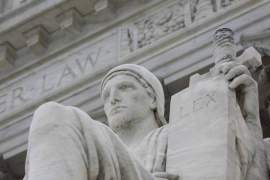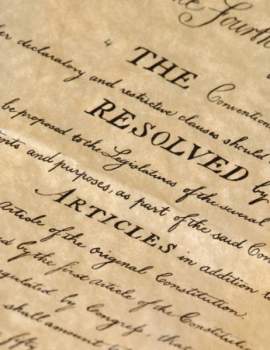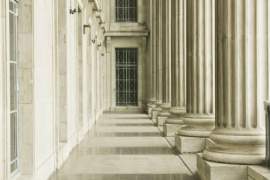
Largent v. Texas

Largent v. Texas
First Amendment rights are among the most protected that citizens of the United States have. Largent v. Texas was a 1943 case that began with a Jehovah's Witness distributing religious pamphlets and literature. It clarified the extent to which municipalities could regulate the distribution and sales of books and other types of First Amendment protected materials.
Jehovah's Witness Pamphlets
Largent was a member of the Jehovah's Witness sect, which believes as a core tenet that its followers should spread their gospel to others. Part of the religious tradition of the Jehovah's Witness sect includes going door to door and distributing literature. This part of the Witnesses' beliefs has led to several Supreme Court cases, including Largent v. Texas.
In the town of Paris, Texas, in the early 1940s, Largent was part of a group of Jehovah's Witnesses that offered a package of a religious book and several magazines door to door. They would ask for a donation of 25 cents, but if the person had no money or refused to donate, they would leave the reading materials with the person regardless.
Municipal Permits
At the time, the town of Paris had an ordinance that prohibited door to door sales or census taking unless the activity had been reviewed by the mayor and granted a permit. In order to get a permit, a would-be salesperson would have to list all the merchandise they were selling so the mayor could personally review it. According to the ordinance, the mayor would only approve salespeople if he found their activity to be “proper or advisable.”
When police in Paris arrested Largent for her activity of distributing pamphlets with or without a contribution, which they construed as illegal book selling without a permit, she sued, saying that her activities were not a sale of books, but rather were based on a choice to spread a particular gospel and evangelize for her religion—a charitable activity rather than a commercial one. After being found guilty at trial and fined one hundred dollars, she appealed her case to the Supreme Court because Texas left her no other way to appeal the ruling in state court systems.
Supreme Court Ruling
The Supreme Court in Largent v. Texas actually ignored the arguments regarding whether Largent had been technically engaged in a sale of the religious material or simply charitable distribution in the name of her religion. According to them, this did not matter, because even if she was selling the religious books, the ordinance in Paris, Texas would still be considered unconstitutional because it violated First and Fourteenth Amendment rights.
Having such a restrictive law, which required mayoral approval on sales of all items, was “administrative censorship in an extreme form.” Not only did such a permitting system violate religious freedoms, but also basic freedom of speech and of the press. The Supreme Court reversed the decision of the trial court, declaring the law Largent had been prosecuted under to be null and void.



















